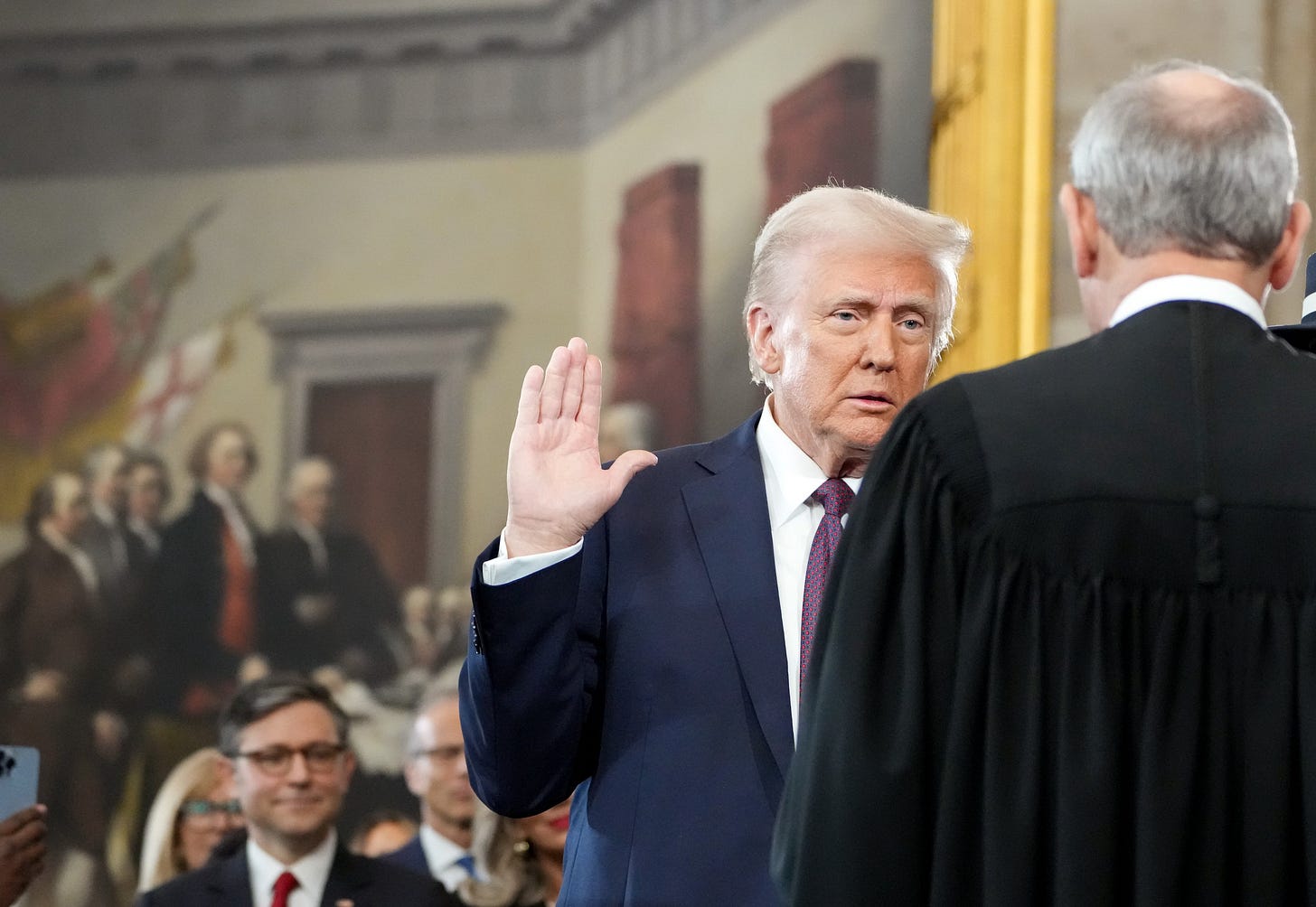Steve Bannon's secret plan for Trump in 2028
Don't forget the 22nd Amendment
Last week was an especially good one for those floating the dubious idea of a Trump 2028 campaign. President Donald Trump’s sometime adviser Steve Bannon assured the top two editors of the Economist that Trump would remain president after his term expires on January 20, 2029.
Another sign Trump might be planning to hang around for a third term came when he demolished the East Wing of the White House to make room for a Mar-a-Lago north, complete with ballroom. And don’t forget that he’s also having the Boeing 747 gifted by Qatar outfitted as a new Air Force One.
Those two gigantic, time-consuming projects seem to many people like the kinds of things you don’t embark on unless you intend to use them for a while.
Asked by Edward Carr, deputy editor of the Economist, if there needed to be a third Trump term, Bannon said, “Well, he’s going to get a third term. So Trump is going to be president in 2028 and people just …




